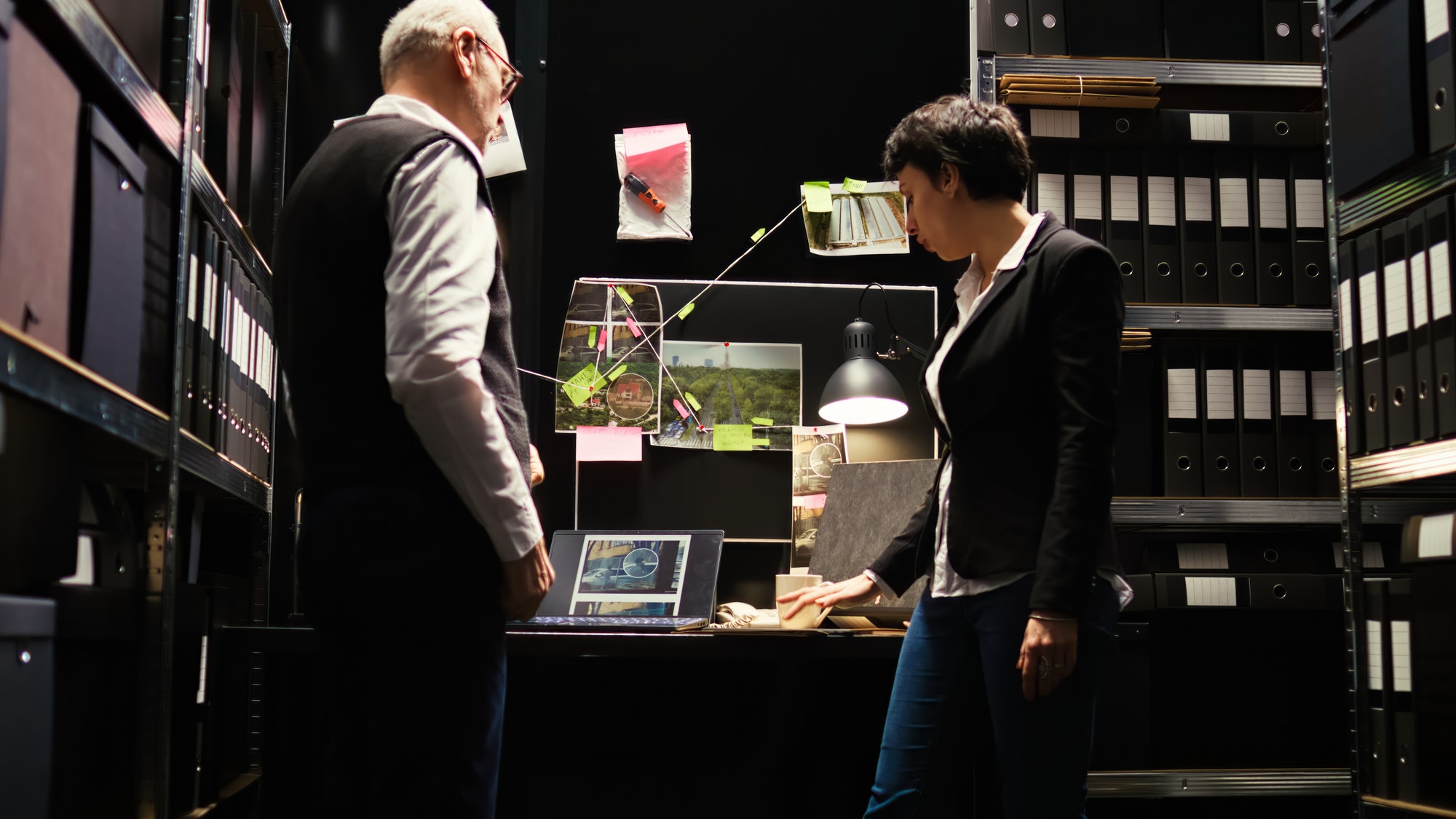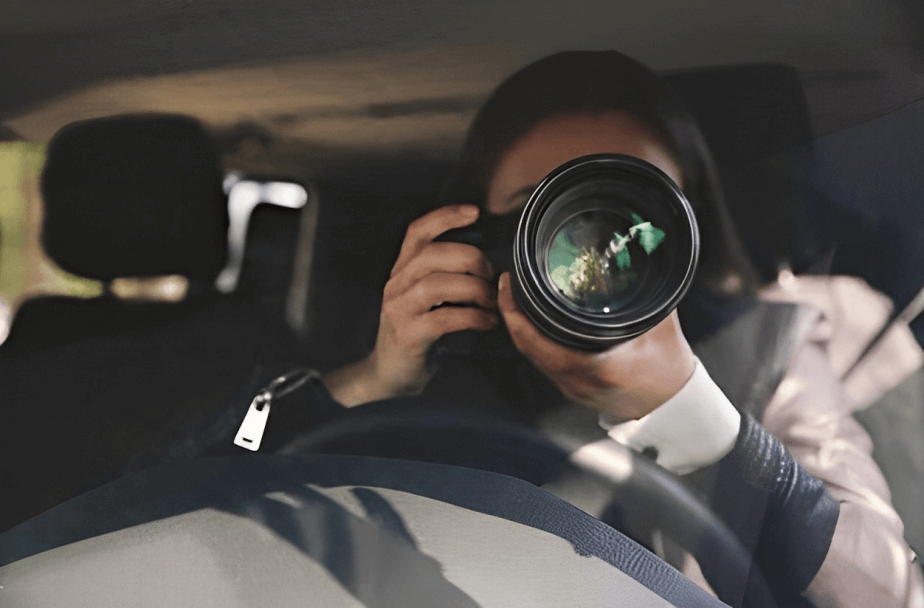
Surveillance can take many forms and is usually used to further an ongoing investigation. Surveillance can be a very effective tool for the investigator, but it requires many hours of training and hands-on experience before becoming proficient in surveillance.
So, what does the word surveillance mean?
The dictionary defines surveillance as 1) The close observation of a person or group, especially one under suspicion, and 2) The act of observing or the condition of being observed. There are many reasons why Law Enforcement and Private Investigators would use surveillance in the furtherance of an investigation. However, even more important to the investigator is how, who, where, and when will the surveillance be conducted.
Let’s discuss the “How” first. The investigator needs to determine how the surveillance will be conducted. Will it be conducted on foot in a shopping mall or parking lot? Will it be conducted by car, maybe following the target from home to work? Will the traffic conditions and time of day be a factor? Will the need for aerial surveillance exist? How many investigators will it take to conduct the surveillance? All these and many more must be determined before surveillance can be initiated.
Now, let’s discuss the “who.” Who is the target? Sometimes, the need for surveillance is to help identify a person. Usually, the investigator already has the target identified, which led to his/her location in the first place. Who does the target live with, or who does the target associate with? Surveillance will assist the investigators with gathering facts or intelligence. Who is the target, and what is his/her background? Is the target a career criminal or repeat offender that is wise to the system? Has he/she been a previous surveillance target? BMC Enterprise investigators will know who they are about to shadow.
BMC Enterprise has discussed the “how” and the “who”. Now, the BMC Enterprise Investigators must decide “where” to conduct the surveillance. Choosing the right location for surveillance may depend on what the desired outcome is to be. Will the surveillance be conducted to gather intel, or will it lead to an arrest? Will a populated area like a mall or a parking lot help the BMC surveillance, or will it be a hindrance to the BMC Investigators? How easy will it be to lose the target in a crowded place, or even worse, how easy will it be for the target to spot the BMC Enterprise Investigators? There are many variables to consider when choosing a location. No two surveillances are ever the same.
Let’s discuss the “How” first. The investigator needs to determine how the surveillance will be conducted. Will it be conducted on foot in a shopping mall or parking lot? Will it be conducted by car, maybe following the target from home to work? Will the traffic conditions and time of day be a factor? Will the need for aerial surveillance exist? How many investigators will it take to conduct the surveillance? All these and many more must be determined before surveillance can be initiated.
Now, let’s discuss the “who.” Who is the target? Sometimes, the need for surveillance is to help identify a person. Usually, the investigator already has the target identified, which led to his/her location in the first place. Who does the target live with, or who does the target associate with? Surveillance will assist the investigators with gathering facts or intelligence. Who is the target, and what is his/her background? Is the target a career criminal or repeat offender that is wise to the system? Has he/she been a previous surveillance target? BMC Enterprise investigators will know who they are about to shadow.
BMC Enterprise has discussed the “how” and the “who”. Now, the BMC Enterprise Investigators must decide “where” to conduct the surveillance. Choosing the right location for surveillance may depend on what the desired outcome is to be. Will the surveillance be conducted to gather intel, or will it lead to an arrest? Will a populated area like a mall or a parking lot help the BMC surveillance, or will it be a hindrance to the BMC Investigators? How easy will it be to lose the target in a crowded place, or even worse, how easy will it be for the target to spot the BMC Enterprise Investigators? There are many variables to consider when choosing a location. No two surveillances are ever the same.
Lastly, let’s talk about the “when”. Daytime and nighttime are two very different factors when it comes to surveillance. I could write an article solely on the difference between the two. The investigator needs to decide when to conduct the surveillance. Sometimes, BMC investigators may not have a choice. Sometimes, the people we choose to follow are night owls or 3rd shifters. They don’t even leave the house until most people are going to bed for the night. This puts a whole new twist on the surveillance. It’s much easier to get “burned” at night because there are fewer people around to blend in with. Ever see the difference between driving at 1 p.m. vs. driving at 1 a.m.? Both times are hazardous to surveillance. Driving at 1 p.m. in most cities makes it easy to lose the target in traffic. Driving at 1 a.m. makes it easy for the target to spot the surveillance.
In closing, if surveillance is different, BMC investigators can only have enough training or hands-on experience. There are just too many variables in an ever-changing society that we live in. If you ever must hire a private investigator and the need for surveillance arises, ask him/her about their training and experience. Many licensed private investigators are former police officers or Deputy sheriffs who have, in fact, logged hundreds and sometimes thousands of hours of surveillance. Some licensed investigators have never conducted surveillance and will seek out the assistance of those who have. Surveillance is an art!
